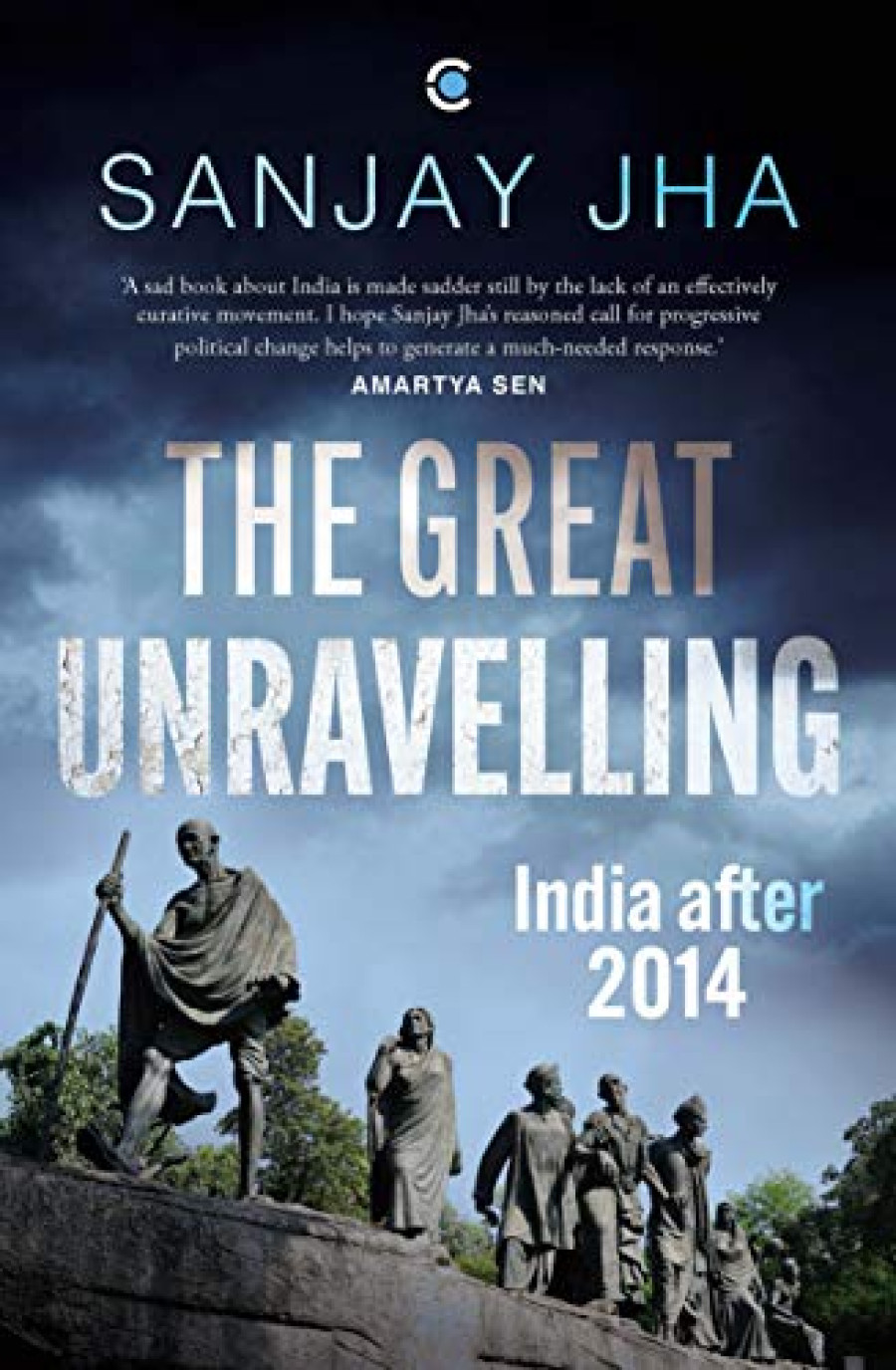Books
An anatomy of ‘New India’
‘The Great Unraveling: India after 2014’ traces in detail deep-rooted complexities in Narendra Modi’s government with a historical perspective.
Atul K Thakur
India, the world’s largest democracy, has been witnessing the processes of unsavoury changes in its democratic fundamentals, says the new book ‘The Great Unravelling: India after 2014’ by former Indian National Congress (INC’s) spokesperson Sanjay Jha. In the fateful year 2014, the Narendra Modi-led majoritarian government started to re-shape India—and it made a point to distort the past achievements of a democratic country that was mostly ruled by the Indian National Congress (INC) since 1947.
The book traces deep-rooted complexities in the new ruling camp with a historical perspective. It establishes how, unlike the INC, left parties and a few regional political parties, Modi’s re-shaped party Bharatiya Janata Party (BJP) had no direct stake in India’s freedom struggle. Hence, distorting history, re-interpreting it as per the emerging needs and artificial projections of national heroes essentially made its core agenda. With proper packaging and by managing the ‘national narratives’ with the mainstream media waiting to bow down, a complete ‘optics’ has been set to vilify anything that preceded Modi. The mission to recast the national agenda, belittle the institutions and opiate the masses with the divisive political-cultural programmes—have laid the foundation of a ‘New India’. All these issues are touched upon while reading Sanjay Jha’s book.
As a document to understand the unravelling and inability of the opposition parties to reclaim their position, this book is an important read—especially for anyone who has genuine interest in the changing nature of democracy in India and South Asia at large. Jha makes it amply clear that the rise of extreme is a phenomenon not limited to South Asia alone. In fact, the whole world is gripped with it. However, in the first reprint of his book, he would like to revisit at least one exception: the fall of Donald Trump and the rise of Joe Biden in the United States of America (USA). Notwithstanding all pressing challenges, democracy as an idea and system is unlikely to be challenged permanently with extreme belief of any sort.
In Nepal, too, democracy is facing its own share of threats with lack of accountability and promises for an inclusive system. Once the Constitutional monarchy, believing the virtue of democracy, let a path be created for its gradual development in Nepal. Surprisingly, the democratic actors of present day Nepal do not look back on their promises and exercise morally justified choices. The democracy and democratic spirits are on wane—and the democratic processes are compromised with no genuine stake left for the masses. Prime Minister KP Sharma Oli has been at the helm of denying truths, personally and politically.
Like Jha, someone in Nepal should chronicle the fall and fall of democratic actors, processes and institutions in Nepal. However, unlike the Indian media, the counterparts in Nepal have some distinct inherent weaknesses. Here, commercialisation has still not reached to the level where it would be considered an extended arm of the government. The good, bad and ugly of Nepali media shapes through the individual preferences rather institutionally exerted pressures. Kathmandu’s air is still breathable, as its media is not in the game of ‘agenda-setting’. The most that happens is it reaches out to an agenda.
Jha, who was suspended from his party for underlining the party’s chronic inability to come to terms with the realities, is still someone who continues to be a Nehruvian and associates himself with his party that deserted him. With an unwavering commitment to remove the anomalies for INC’s revival, he has written this book that significantly links the changing nature of Indian politics with a commercially polarised media, thus highlighting how democratic behaviour has weakened or rather lost in public discourses.
At one point in ‘The Great Unravelling: India after 2014’, he writes, “You need Machiavelli, not a Mahatma to outwit Modi, Arnab Goswami told me about Rahul Gandhi.” Jha also writes about why Arnab Goswami wanted to go after INC leader Rahul Gandhi and the TV debate that truly hurt his credibility. He writes, “Arnab was obsessed with TRPs. During commercial breaks, he would share with me interesting titbits on the audience viewership numbers that he received on his mobile, as well as adulatory messages from adoring fans. And there were many. There is an unsaid understanding that exists between journalists and politicians; the relationship is inherently antagonistic. So, despite the overt camaraderie, Goswami and I maintained a respectable distance.”
Unlike the rest of the world, the democracies in South Asia closely identify with caste and religion. This is something capable of maligning the democracy’s natural progression—and the added jolt comes through a compromised media that violates journalistic ethics and commitment for disseminating fair public information. With unprecedented challenges, democracy is facing a litmus test.
——————————————————————————
The Great Unravelling: India after 2014
Written by: Sanjay Jha
Published by: Westland-Context
Pages: 277
Price: Rs 599




 22.12°C Kathmandu
22.12°C Kathmandu










